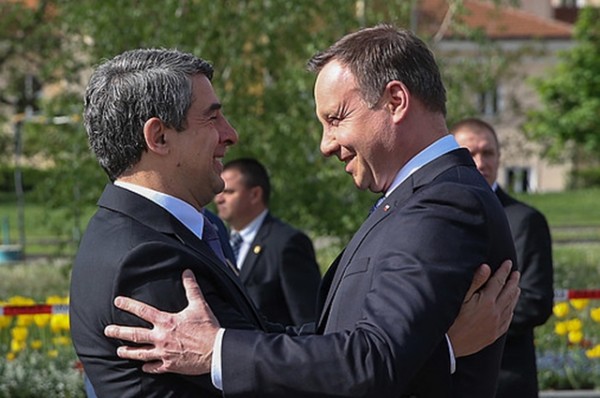By Ferenc Almássy.
Austria – Two months after the parliamentary elections, the negotiations are successful and a government has been formed. The coalition government between the ÖVP conservatives and the FPÖ national-liberals could have far-reaching consequences for politics in Europe.
It took two months of negotiations to form the Austrian government. As is customary, the leading party agrees with the second and / or third party to form a coalition government. And for the first time since the beginning of 2007, the FPÖ is again a member of the coalition. The young Sebastian Kurz, 31 – and the youngest head of government on the planet currently in office – has chosen to break the usual alliance with the social democrats of the SPÖ. Heinz-Christian Strache, the FPÖ’s boss, is vice-chancellor. And the FPÖ gets amongst others the ministries of the Interior, Defense and Foreign Affairs.
After his coup at Spring within the conservative ÖVP party, Kurz has clearly hardened the tone on immigration and political Islam. Representative of a generation, sincere strategy or necessary shot to win against the rise of the FPÖ, champion on these themes? The question may arise, of course. But the facts are there: Sebastian Kurz allowed the ÖVP to get back on the victory trail and win the Chancellery. He is now leading an anti-immigration government which wants to reduce social assistance to foreigners, to protect borders and to favor – mainly Austrian – businesses.
Consequences of the 2015 migrant crisis
Summer 2015 has been a turning point for Europe. It has been the awakening of Central Europe and the Visegrád group (V4), carrying a vision opposite to the “open society”. But it was also the beginning of a new political era in Austria, of which these elections are only a direct consequence and the true founding act. The calamitous management of the migration crisis by the government of Chancellor Faymann led to his resignation in May 2016 and the near-victory of the FPÖ in the presidential elections the same year – postponed twice because of serious irregularities. Chancellor SPÖ Kern who followed tried to bring back some control over immigration. But it is the young foreign Affairs minister, Sebastian Kurz, who has managed to make the most of it. He hardened the tone against Turkey – which has a large organized community in Austria – and made some well-measured outings against political Islam. He then, in the wake of Viktor Orbán and V4, weighed all his weight to close the Balkan Route, and have imputed all the merit to himself for this during the legislative campaign.
In the meantime, the FPÖ has been steadily strengthening, until it came to the fore in polls for the parliamentary elections at some point. The masterstroke of Sebastian Kurz allowed him however not to be defeated. So here we are, after two years of crisis due to the great migratory wave of Summer 2015, with a totally different political situation.
And so the balance started to tilt…
Despite the almost unanimous moral pressure of the press against the acceptance of the FPÖ, the FPÖ’s themes and cadres are now in government. This same press had, it should be remembered, supported the policy of open borders to the masses of illegal immigrants – among them many terrorists.
When violent events occur, peacetime ideological propaganda collapses. Kurz belongs to a generation that has not experienced the cold war, let alone previous wars. He did not know either the peaceful and naive opulence of the Glorious Thirty. On the other hand, he knows the expectations and fears of his generation, while having benefited from an understanding of conservative public opinion, all generations combined, in contact with the old conservative Elders. He is not fooled by the politically correct and his ambition allowed him to quickly climb by bringing the necessary changes to the conservative party in order to keep it eligible.
It’s therefore a technical victory of the conservatives. But actually, the FPÖ has a foot on the top step of the podium: its themes have emerged, the “far-right” glass ceiling has shattered, and its current generation of executives are now involved in the country’s governance.
That’s all for the national level. But on the European level, it goes even further. While the V4 begins to be unavoidable in Brussels, where violence against it is a grotesque admission of powerlessness of a small caste at the top of the EU, eager for open society and neoliberalism, Austria comes to shake things up. By joining de facto the rebel Visegrád Group on the main political issue of the moment, namely mass immigration, Austria and its government Kurz I, could be the weight that will tip the balance on the side of central-European conservatism, to the detriment of Western liberals.



